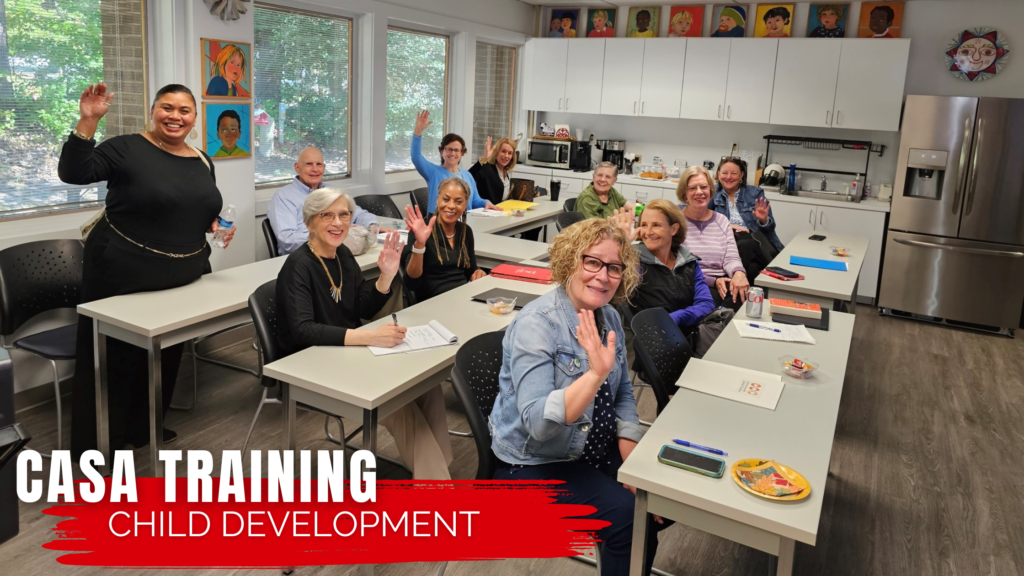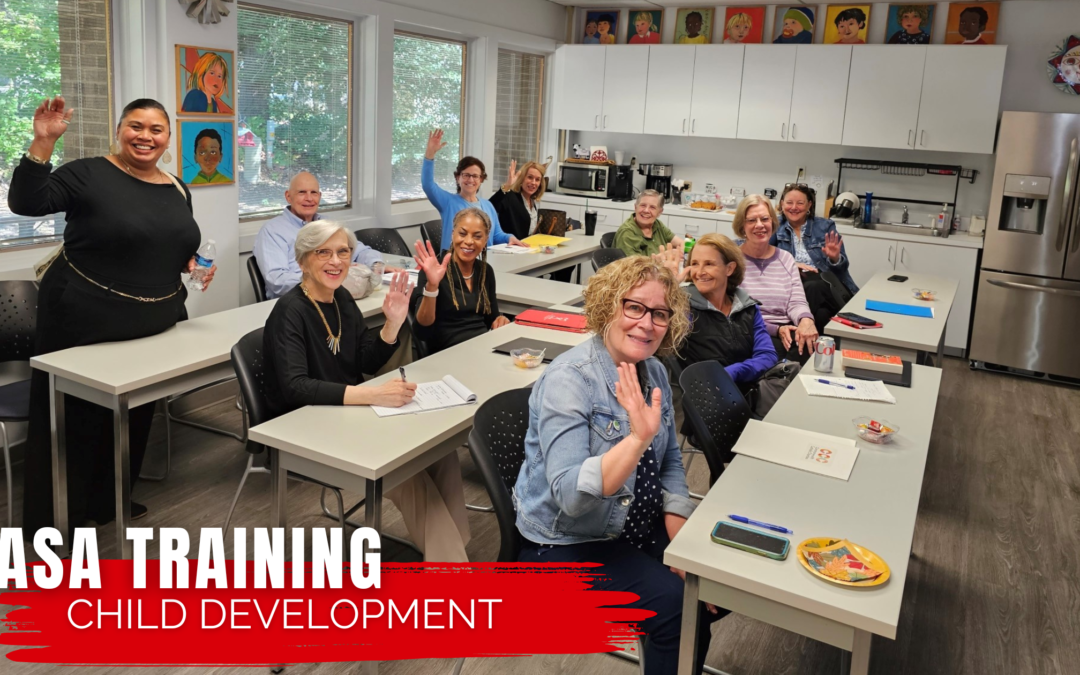
This fall, community members are working through our pre-service training, ready to start their journeys as Court Appointed Special Advocates. They join the 400+ advocates who have come before them during our 30 years of advocacy in Henrico County. We thought it would be a great time to share more about what CASA advocates learn in training.
Every child deserves a safe and nurturing environment to grow and thrive. Without a baseline understanding of child development, future CASA advocates can not identify areas where a child has been affected by trauma and/or needs additional support. That is why we address child development during our pre-service training.
During class sessions, advocates-in-training learn children’s ages and stages of development, recognizing that no two children are alike. They also learn about children’s need for attachment, the challenges that arise when separated from their family, as well as the priority placed on permanence. In addition, CASA advocates study potential psychological and educational issues, including the importance of assessments and intervention.
Hierarchy of Needs
One of our class discussions emphasizes the many needs that are shared by every child. Afterall, a child’s well-being depends on these needs being met and CASA advocates must speak-up for those needs. We teach five categories of needs, based on Maslow’s Hierarchy of Needs, starting with the most basic:
- Food, clothing, and shelter
- Protection and security
- Affectionate and supportive relationships
- Respect and esteem
- Sense of purpose
These needs build upon one another. Healthy development requires that one must be met before the next, and all are vital.
When working with adolescents, our advocates emphasize the higher-level needs. Young people need to feel empowered in planning for their futures… but before they can build esteem and a sense of purpose, they need a trusted relationship. And that supportive relationship can be in the form of one of our Court Appointed Special Advocates! Learn more about becoming a CASA advocate here.








